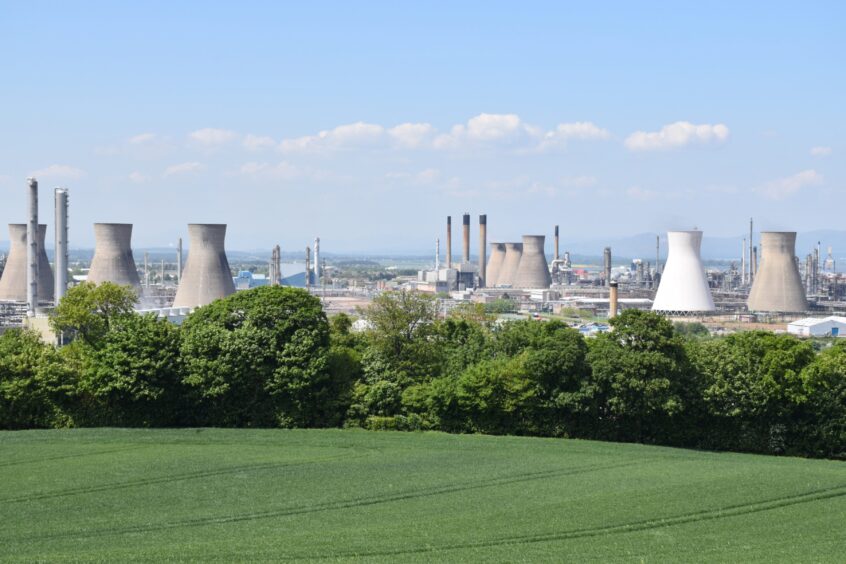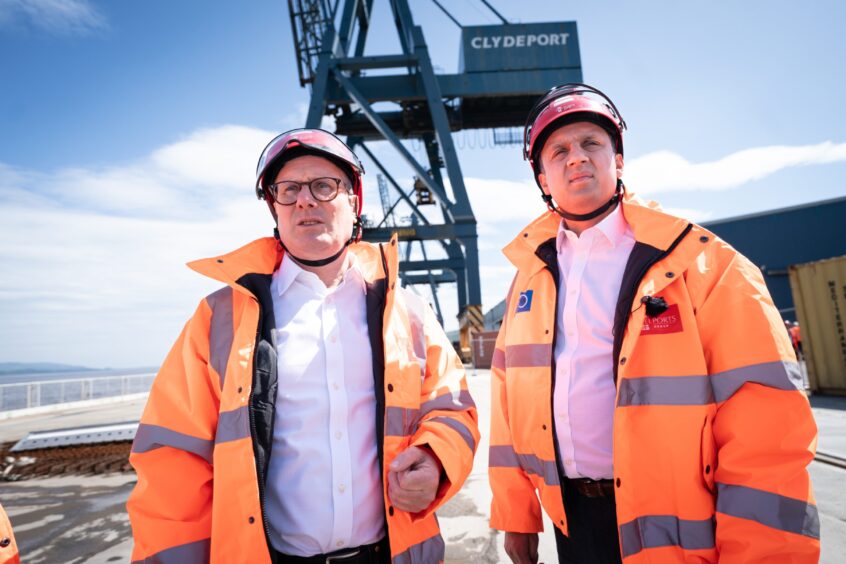A debate of Scottish political leaders ahead of the UK General Election on 4 July revealed more details about the parties’ energy policy, including a proposed state-owned energy firm.
Scottish Labour leader Anas Sarwar said his party’s proposed windfall tax on would raise £3billion a year and create 69,000 jobs.
He said 53,000 jobs would be backed by GB Energy, a “publicly owned energy generation company” headquartered in Scotland.
In a debate hosted on STV, Sarwar said the money raised would be used to put “more money into people’s pockets to lower bills” and invest in clean energy so we can “lower bills for good”.
He did not give details of where in Scotland it would be based, although a recent poll suggested most would be in favour of it being in Aberdeen.
Investment for Grangemouth
Sarwar also said a Labour Government would put “hundreds of millions of pounds” into an “energy transition hub” at Grangemouth.
This would be in response to plans announced last year that Scotland’s last remaining oil refining plant would close in 2025 amid a decline in North Sea oil output and falling demand for fuels.
Refinery operator Petroineos – a joint venture between PetroChina and Ineos – blamed market pressures and the energy transition for the decision.
An estimated 400 of some 500 jobs at the site could be axed in the process.
“We would step in and put our money where our mouth is and invest … and step in to save the jobs at the refinery and invest in that transition by making an energy transmission hub at Grangemouth. We would put hundreds of millions of pounds behind it to make it a reality,” he said.
What is GB Energy?
There has been some confusion over Labour’s plans for its state-owned energy company.
Last week Labour leader Sir Keir Starmer described it as an “investment vehicle, not an energy company“.
The Labour party later suggested it would not be an energy retail company and that it will “generate power in its own right, as well as owning, managing and operating clean power projects alongside private firms”.
Labour has also said it wants to hand the company £8.3bn over the next five years for investments, funded by the windfall tax.
The Tory government recently extended this levy until 2029, but Labour want to charge a higher rate and close some tax allowances for investment.
Last night Sarwar dismissed claims Labour policies would destroy up to 100,000 jobs in the sector and said the party would invest in supply chains for offshore wind and in ports.
The future of energy policy
He insisted there would be “no cliff edge” for the oil and gas industry.
“We need those very oil and gas companies as well as the renewable companies to make those investments, and we will do that in partnership to deliver that transition” he said.
He added predictions by trade body Offshore Energies UK (OEUK) that Labour plan would cost the industry 42,000 jobs was “wrong”.
The First Minister John Swinney evaded answering if he was in favour of new oil and gas licences in the North Sea.
The SNP leader has recently hinted that his party is reviewing its opposition to further epxanding offshore exploration.
He said he was “in favour of windfall taxes where gross profits have been made” and in a climate compatibility test “because we have got to judge the right things to do in terms of the transition to net zero”.
He compared Labour’s policy to that of Prime Minister Thatcher’s in the 1980s which he said resulted in an “industrial wasteland in central Scotland” and that this would also happen in the north-east of Scotland.
Recommended for you



 © Supplied by Ineos
© Supplied by Ineos © Stefan Rousseau/PA Wire
© Stefan Rousseau/PA Wire






